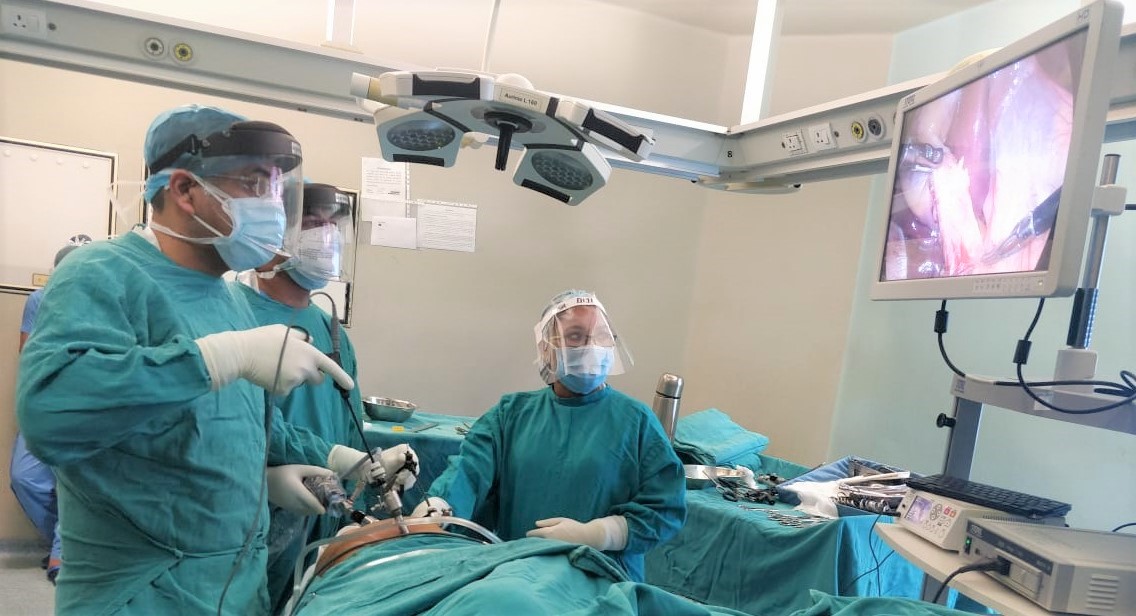A consultation with a laparoscopic gynecologist typically involves several key components to ensure that patients are well-informed and comfortable with the potential procedures. Here’s what patients can generally expect during such a consultation:
1. Medical History Review
The gynecologist will begin by taking a detailed medical history.
This includes:
- Current symptoms and their duration.
- Past medical and surgical history.
- Any medications currently being taken.
- Family medical history, particularly related to gynecological conditions.
- Lifestyle factors, such as diet, exercise, and smoking.
2. Symptom Discussion
Patients will discuss their symptoms in detail.
The gynecologist may ask questions about:
- Pain (location, intensity, frequency).
- Menstrual cycle regularity and any abnormalities.
- Reproductive history (pregnancies, miscarriages, births).
- Any other gynecological issues like abnormal bleeding or discharge.
3. Physical Examination
A physical examination may be conducted, which could include:
- A pelvic exam to check for any abnormalities in the uterus, ovaries, and other pelvic organs.
- A general physical exam to assess overall health.
4. Diagnostic Tests
Depending on the initial findings, the gynecologist may recommend further diagnostic tests such as:
- Ultrasound or other imaging studies to get a clearer view of the pelvic organs.
- Blood tests to check hormone levels, blood count, and other relevant markers.
- Biopsies or other tissue samples if necessary.
5. Explanation of Laparoscopy
The gynecologist will explain what laparoscopy involves, including:
- How the procedure is performed (use of small incisions, insertion of a laparoscope).
- The advantages of laparoscopy compared to open surgery (less invasive, quicker recovery).
- Potential risks and complications.
- What the procedure aims to diagnose or treat (e.g., endometriosis, fibroids, ovarian cysts).
6. Treatment Options
The doctor will discuss possible treatment options based on the diagnosis. These may include:
- Medical management with medications.
- Lifestyle changes and other non-surgical interventions.
- Surgical options, including the details and benefits of laparoscopic surgery.
7. Preoperative Preparation
If surgery is recommended, the gynecologist will explain how to prepare for the procedure, which might include:
- Preoperative tests and evaluations.
- Instructions on fasting and medication adjustments.
- What to expect on the day of surgery.
8. Postoperative Expectations
Information will be provided about recovery after surgery, including:
- Expected pain and how it will be managed.
- Activity restrictions and when normal activities can be resumed.
- Follow-up appointments and any signs of complications to watch for.
9. Questions and Concerns
The consultation will typically conclude with an opportunity for the patient to ask questions and express any concerns. This ensures that they fully understand the proposed plan and feel comfortable with the next steps.
Tips for Patients
- Bring Medical Records: Have relevant medical records and a list of current medications.
- Prepare Questions: Write down any questions or concerns beforehand.
- Take Notes: Bring a notebook or use a phone to take notes during the consultation.
- Consider a Companion: Bringing a trusted friend or family member can help remember information and provide support.
By understanding what to expect during the consultation, patients can feel more at ease and actively participate in their healthcare decisions.





Comments